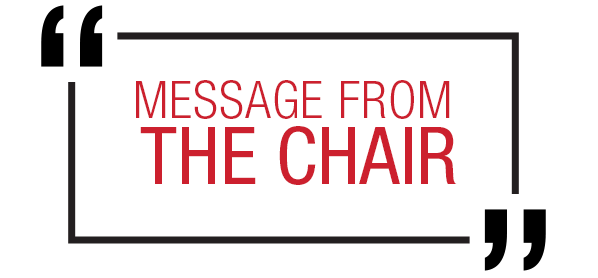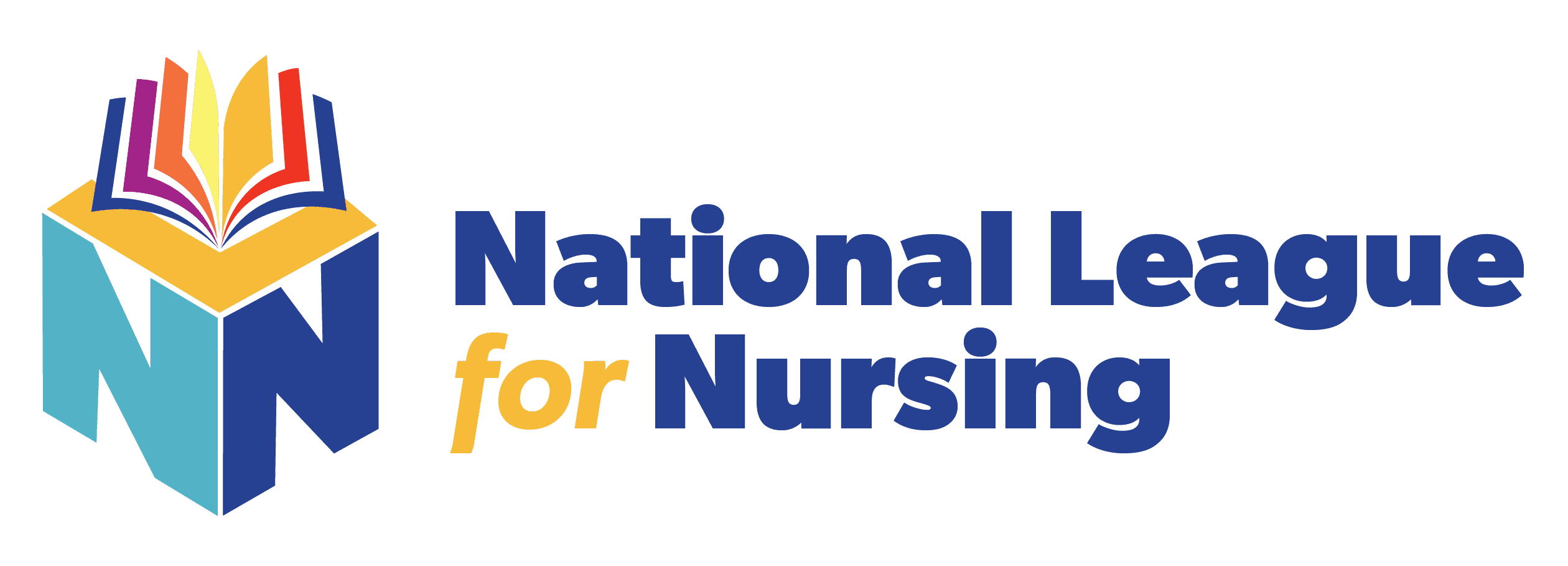
March 2023

2023 will be another busy year for the Certification Board of Commissioners, certification item writers, and test development volunteers. The pilot tests for the new CNE®cl exams were completed on February 2 and new cut scores have been determined
and implemented. A practice analysis will be done for the CNE® exam this year. Practice analysis volunteers met every Friday during February to begin the multi-step process of getting a survey ready to send out to current CNEs.
Item writing is underway for both CNE®n and CNE®cl exams. There will be approximately 170 new questions being written for these two exams. Once the items are completed, the test development committees for each will meet to review the new items.
The NLN Education Summit will be in Washington, DC, September 28-30, 2023. If you plan to attend, please join us for the 2023 Certification Reception. We want to honor all certified nurse educators during the reception and we will be announcing the STAR Award recipients. I hope to see you there!
Pam Fifer, EdD, RN, CNE

Happy Certified Nurses Day on March 19 to all our certified nurse educators!
Hopefully spring is just around the corner for most of you. This winter has been brutal in certain parts of the country. The NLN Certification Division has initiated some new practices that should be of interest to all certificants.
The Board of Commissioners has voted to expand the Certification Star Award. Not only will the award now be given to a nursing education program, but there will also be an award for an individual who has demonstrated excellence in the commitment to nurse educator certification. The applications will be posted on the NLN website and nominations will be due mid-summer. The awards will be presented at the 2023 NLN Education Summit held at National Harbor just outside of Washington, DC, this September 28-30.
The Certification Program Test Development committees have been quite active. The Practice Analysis for certified academic clinical nurse educator (CNE®cl) has been completed and two new forms of the CNEcl exams have been piloted and released. The certified nurse educator (CNE®) Practice Analysis Committee has begun the work of updating the CNE program with a new survey. This also will lead to two new forms of the CNE exam later this year.
The CNEcl and the certified novice nurse educator (CNE®n) exams now have only three options to each item rather than the traditional four. The decision to make that change is supported by current testing literature. The outcomes of making this change for the CNE and CNEcl exams will be presented at the Certification Reception held at the Summit this fall. I also would like to thank the folks at Meazure Learning for all the support as our testing administration partner in the work and the review of data that is so critical for excellence in a certification program.
Be sure to read the latest Highlight article in the new Nurse Educator Perspectives journal. The discussion points of the article are all about the three certifications that we now offer, presenting multiple pathways to nurse educator certification. The International Council of Nurses meeting in Montreal, Quebec, Canada this July has accepted three abstracts (one for each certification) regarding outcomes of our certification testing.
Please remember that if your certification expires in 2023, you are able to submit the application renewal at any time this year. Applications for renewal are due to the program by October 1. All renewal activity is done electronically, so you must have correct login information to access the Certification Portal. This will allow the program to process the renewals before the end of the year. The expiration date on the certificate may say December 31 but the renewal must be completed before that date. And also keep in mind that the office closes for the holidays around December 21.
Follow-up on Dr. Malone’s Certification Story
I hope that you enjoy reading Dr. Beverly Malone’s bi-weekly Member Update. We really appreciate her recent sharing of her certification experience.
Dr. Malone’s story about losing her certification was a sad, yet avoidable situation. Please do not let that happen to you for any certification that you may hold. Below is information about a renewal of the NLN nurse educator certification, whether it may be the academic nurse educator (CNE®) or academic clinical nurse educator (CNE®cl) that may come up for renewal.
First, it is important that you enter your Certification Profile (via the Certification Portal) on either the CNE or CNEcl webpage. Making sure that your email address is current will provide the NLN Certification Division with the correct address for the mailing of renewal reminders. The program generally sends three reminders during the expiration year.
Entering your Profile will also ensure that your login and status is correct. We have many members that have duplicate accounts in the NLN system. This will allow you to correct that situation if it has happened to you. The certification system does not know which account is right, so entering your profile is blocked. Membership can assist you with this problem.
Secondly, applications to renew are due to us by October 1 of the year of expiration. You may renew by portfolio submission into your profile or by registering to renew by retest. The due date allows us to process all renewals before the December 31 expiration date. Please keep in mind that the NLN offices generally close for a holiday break around December 21.
If you have missed the deadline of October 1, and have waited too long, there will be no one in the office to assist you if you have an issue. Renewal applications received after December 21 will not be reviewed, and the certification will expire on January 1 of the following year. The grace period will be from October 1 to November 1. There may be a late fee assessed for any application received after November 1.
An application for Retired status also must be received before December 21. Retired status is only granted for active certifications.
The last thing the division wants to do is to deny renewals, so please follow the policies that are established to ensure that your renewal or application for Retired status is processed in a timely manner and does not pose a risk for you to lose
your certification.
Larry E Simmons, PhD, RN, CNE, NEA-BC. CGNC, ICE-CCP
The Value of NLN Certifications as an Internationally Educated Nurse Educator & Leader: A Meaningful Path to Professional Development
Benjamin Brebonaria, DNP, RN, CNE, King Faisal University, Saudi Arabia
CNEn Certification Interviews – January 2023
Ms. Anderson shared that she has 20 years of experience as a nurse, including prior experience in nursing professional development. She is in her second year of practice as an academic nurse educator and was feeling very novice in this new role. She recognized that her orientation as a new faculty was limited in depth and breadth, leaving her wanting more knowledge. As she grew in the role as a nurse educator, she realized that she wanted certification to validate her knowledge. Additionally, she has set a long-term goal for obtaining certification as an academic nurse educator (CNE).
Dr. Fisher is a nurse practitioner in Women’s Health and has prior experience precepting and mentoring new employees and nursing students in the clinical setting. As she moved into academic nursing education, she described how she felt like a new graduate nurse in this new role. She values certification to further her knowledge and is a self-described lifelong learner who felt that she needed more help to fully operationalize the role of academic nurse educator. Dr. Fisher discussed how this certification demonstrates her commitment to nursing education and that the credential makes her application more competitive for full-time faculty positions.
Both nurse educators described the importance of expanding and validating their knowledge through certification. They view certification as a tool to help them better prepare for their roles as academic nurse educators.
Ms. Alexander described her prior experiences working in a magnet hospital, and how the organization celebrated the achievement of certification, which made it a form of meaningful recognition. She discussed the value of investing time in learning the craft that you think you are good at, and then learning that there is more out there to learn. Certification validates what you know and what you don’t know.
Dr. Fisher views certification as a badge of acknowledgement recognizing her knowledge as an educator. She further described how the credential validated that she is officially an academic nurse educator and is on the path to becoming a certified nurse educator.
These educators described their personal journeys of self-discovery and professional development, as well as pride in achieving their goal of obtaining certification.
Ms. Alexander encouraged other educators to view the preparation process for sitting for the certification exam as an opportunity for learning. She further described her professional growth as an educator while she was preparing for the certification exam. She also encourages future certification candidates to intentionally prepare for the exam and dedicate time to preparation.
Dr. Fisher shared how she wasn’t sure where to focus her preparation for the exam. She found limited resources available for CNEn exam. Thus, she completed a prep course for the CNE exam available through NurseTim. These were helpful. However, I’m not sure that the CNE prep did not help as much as I hoped. Look for other resources.
Both educators encouraged dedicated, focused preparation for the certification exam. The NLN offers self-assessment exams that may be used as a tool to assess readiness to sit for the certification exam, and to identify areas of strengths and
areas of growth.
Ms. Alexander views certification as an accomplishment that helps set you apart from educators and facilitates connections with other certified nurse educators. She also described how certification provides value to your organization. She also sees the CNEn as path to earning her CNE.
Dr. Fisher sees the value in certification as showing her commitment to nursing education. The process of obtaining certification has opened her eyes to other resources and opportunities available to nurse educators.
The value of certification as an academic novice nurse educator is that it serves as a hallmark of distinction and a point of pride, validating one’s knowledge as a nurse educator. Additionally, certification demonstrates a commitment
to nursing education, serves as preparation for advanced certification in the future, and benefits one’s organization.
Ms. Alexander discussed how she uses the knowledge gained through preparation for certification in her work as an academic nurse educator. For example, she described how preparing for the certification exam has answered previously unanswered question related to operationalizing the role of academic nurse educator. For example, she described how she levels content using Bloom’s taxonomy and evaluates alignment between learning activities and outcomes.
Dr. Fisher described how she uses knowledge gained through certification to reinforce things that she’s experienced in her courses. For example, she shared how increasing her knowledge about item analysis facilitated her work preparing new exam items and reviewing exam items based upon item analysis data. This preparation has helped her feel more confident to expand in the role of academic nurse educator or step up to future academic leadership opportunities.
Preparing for and obtaining certification enhances the ability of the academic novice nurse educator to operationalize their roles and increases their confidence in implementing the role.
directory
